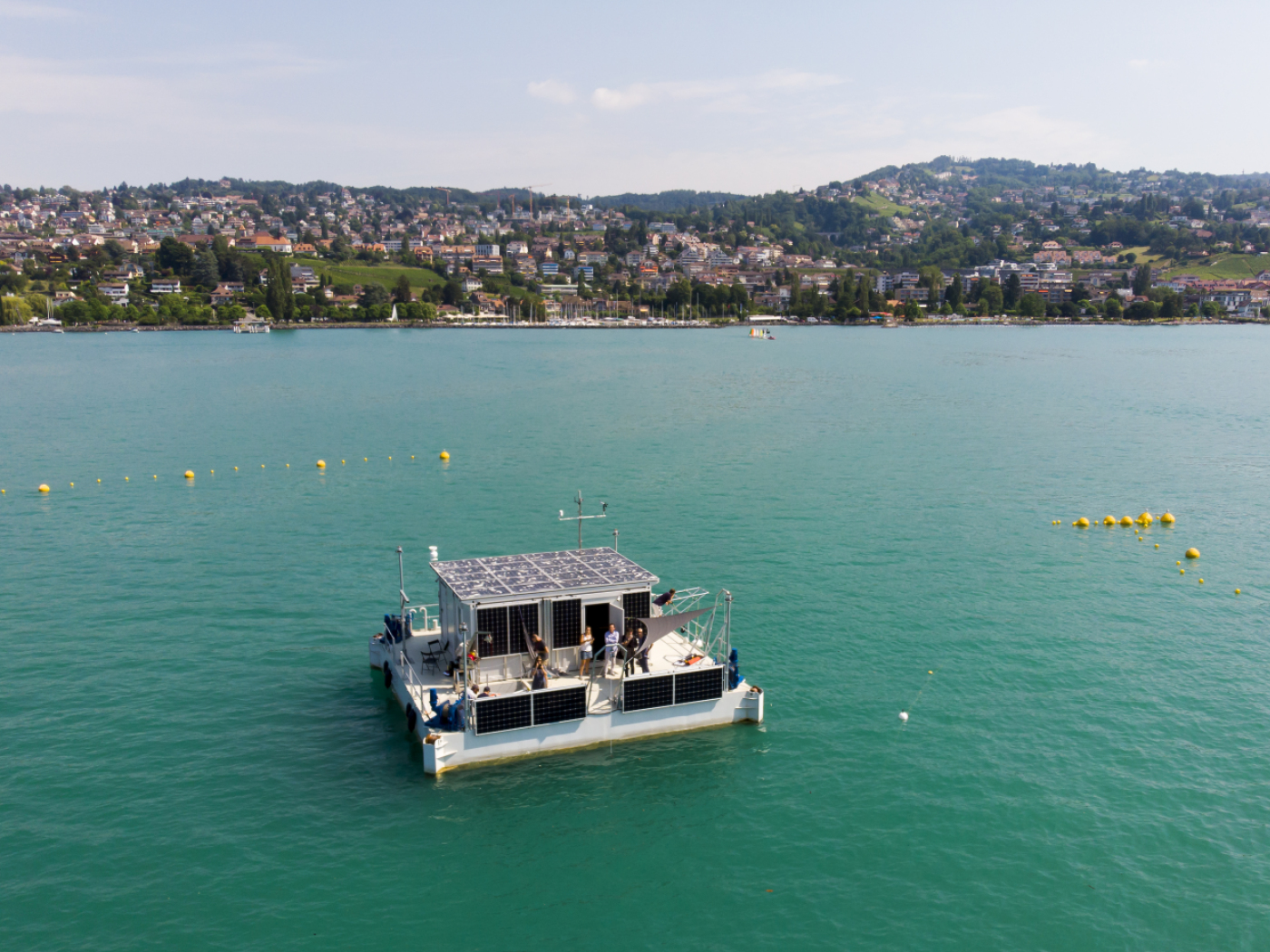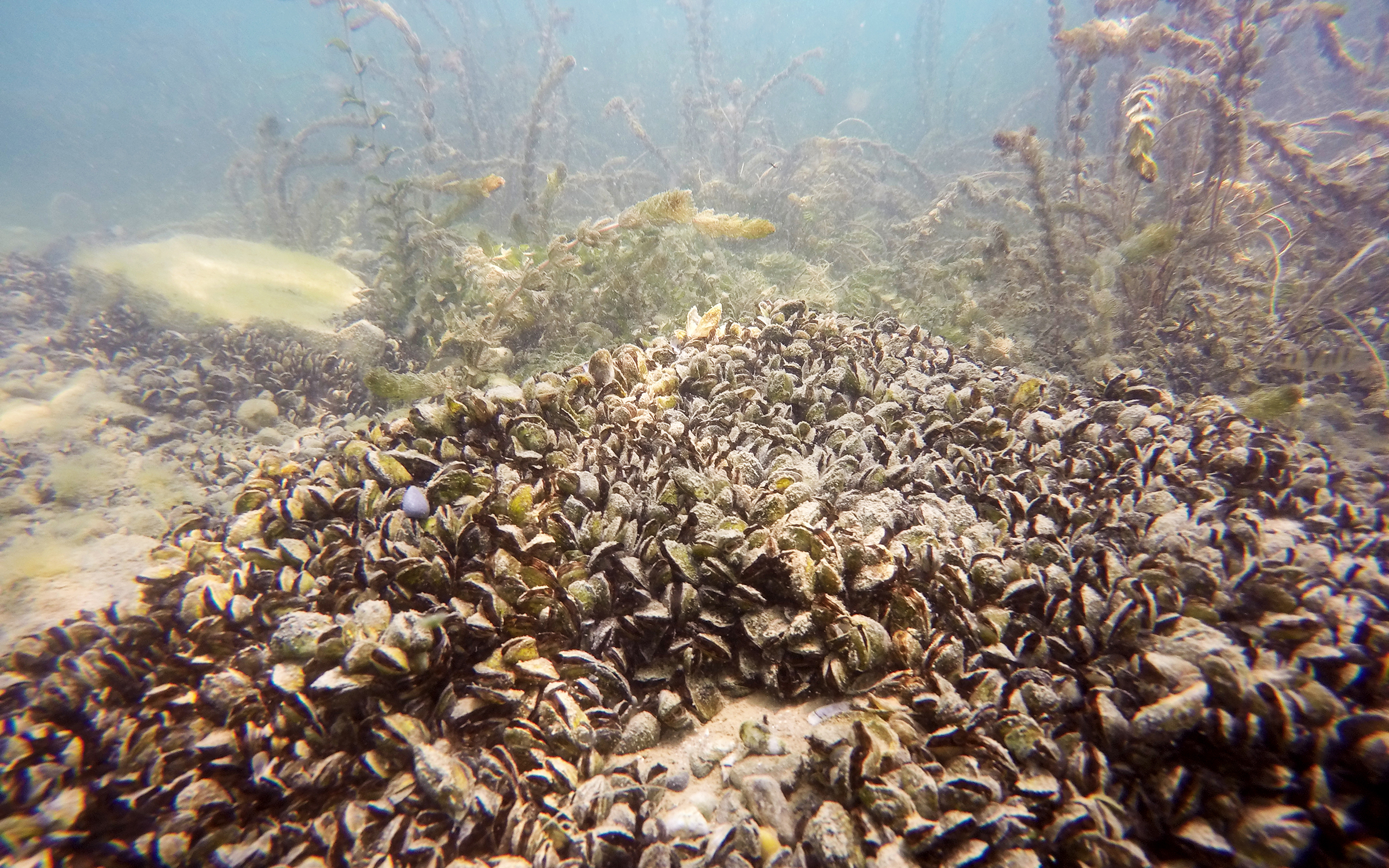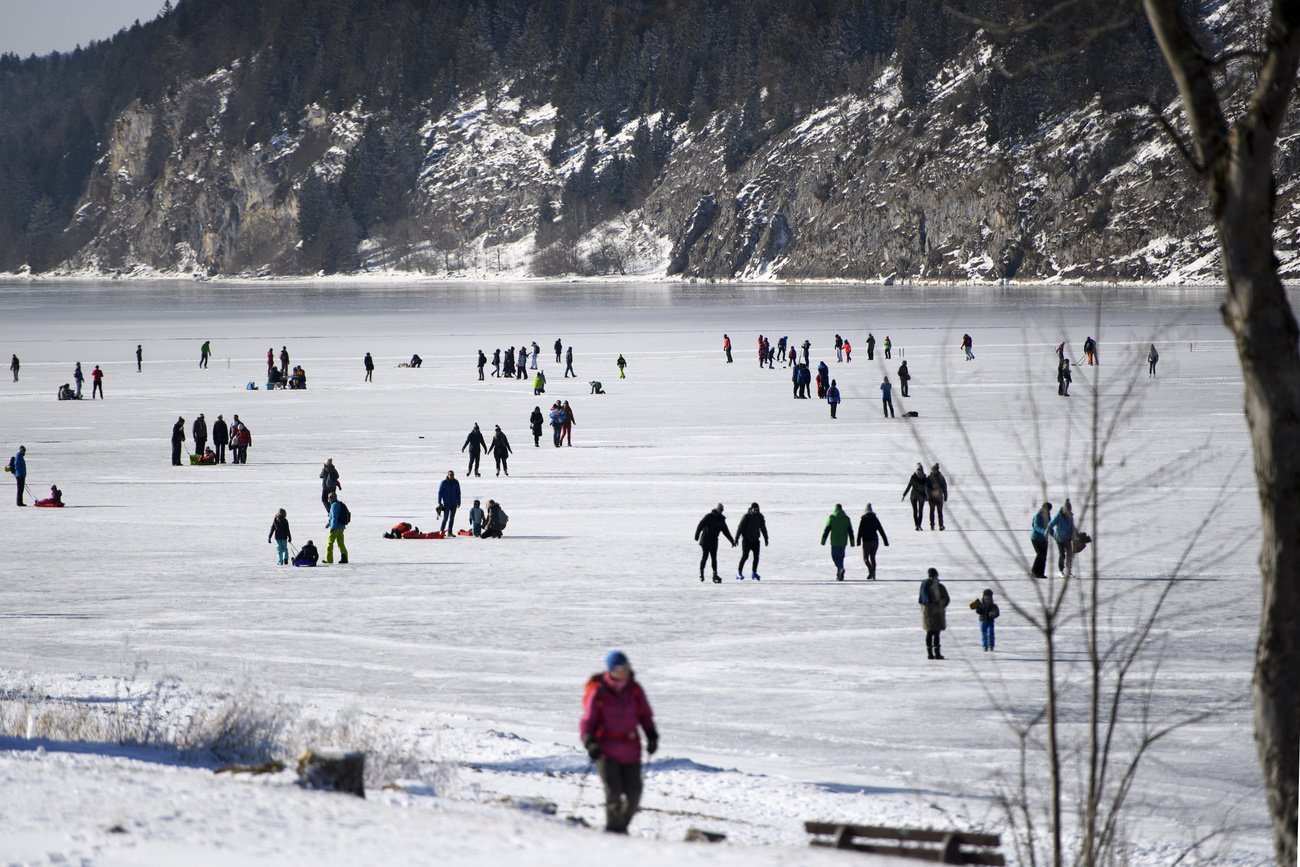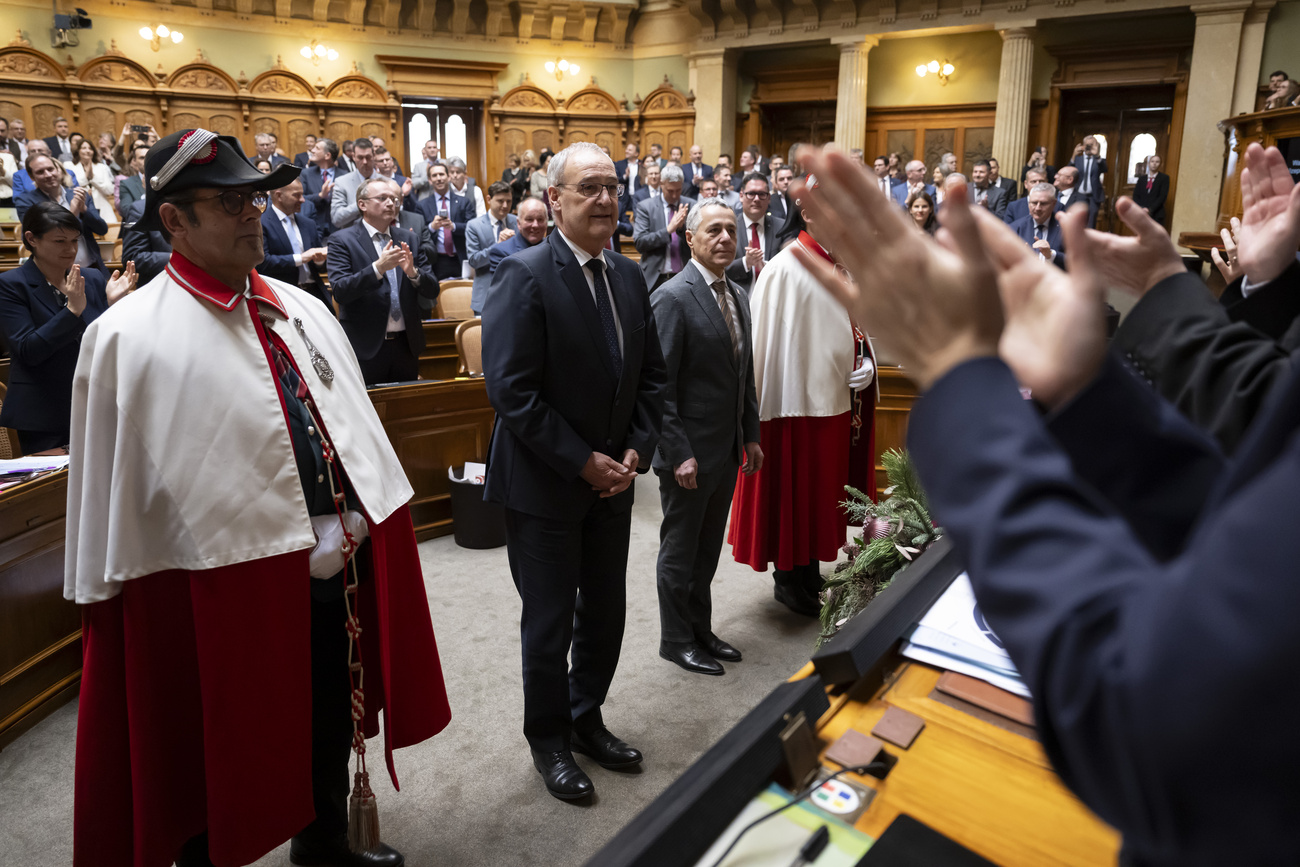
Scientists explain Lake Geneva’s unique carbon footprint

Swiss scientists have unlocked the carbon cycle of Lake Geneva, explaining why it releases CO2 despite containing little organic matter.
+ Get the most important news from Switzerland in your inbox
Traditional scientific theories previously attributed CO2 emissions from lakes to the massive input of organic material from the surrounding soils into the lake, as the University of Lausanne (UNIL) wrote in a press release on Wednesday.
This material from plant and animal residues in the soil is washed into the water by rainfall. As soon as it reaches the lakes, it is decomposed by the microorganisms living there. This produces CO2.
+ Read why fish species are disappearing from Swiss lakes
Lake Geneva works differently
Although this theory can explain the activities of some lakes, it does not work for Lake Geneva. This is because it receives very little organic material from its shores.
The CO2 balance of Lake Geneva over a year should therefore be neutral: With CO2 production in winter (through the decomposition of organic material and the recirculation of water) and CO2 uptake in summer (through photosynthesis by algae).

More
Invasive quagga mussel could profoundly change Swiss lakes
Mechanism deciphered
The reasons why this is not the case in Lake Geneva have now been deciphered by a team of scientists from UNIL in a study published in the journal “Science Advances”: According to the study, a large proportion of the emissions actually come from the natural erosion of the rock on the upper shore of the lake.
This is because the rainwater releases bicarbonate and calcium ions when it hits the rocks, which then enter the lake. In summer, the ions form micro-calcium particles due to the heat and algae growth. This is known as calcite precipitation.
Algae activities are not enough
This chemical reaction releases CO2 and gives the lake its milky blue-green appearance in the warm season. Although the many algae continue to absorb CO2, this is not enough to compensate for the massive production from rock weathering. The additional emissions are therefore the result of a geological process and not just a biological one, as previously assumed.

More
Climate change poses risks to Swiss lake ecosystems
“These findings reveal a universal process that applies to several large, emblematic lakes around the world,” said Marie-Elodie Perga, Professor of Limnology at UNIL and co-author of the study, in the press release.
The team used the LéXPLORE experimental platform near Pully VD to observe the processes on a very small scale, model them and convert them into equations. These have now provided the missing piece of the puzzle to the conventional models of the carbon cycle. The new data could also help to properly combat global warming, UNIL wrote.
Translated from French by DeepL/mga
This news story has been written and carefully fact-checked by an external editorial team. At SWI swissinfo.ch we select the most relevant news for an international audience and use automatic translation tools such as DeepL to translate it into English. Providing you with automatically translated news gives us the time to write more in-depth articles.
If you want to know more about how we work, have a look here, if you want to learn more about how we use technology, click here, and if you have feedback on this news story please write to english@swissinfo.ch.

In compliance with the JTI standards
More: SWI swissinfo.ch certified by the Journalism Trust Initiative































You can find an overview of ongoing debates with our journalists here . Please join us!
If you want to start a conversation about a topic raised in this article or want to report factual errors, email us at english@swissinfo.ch.